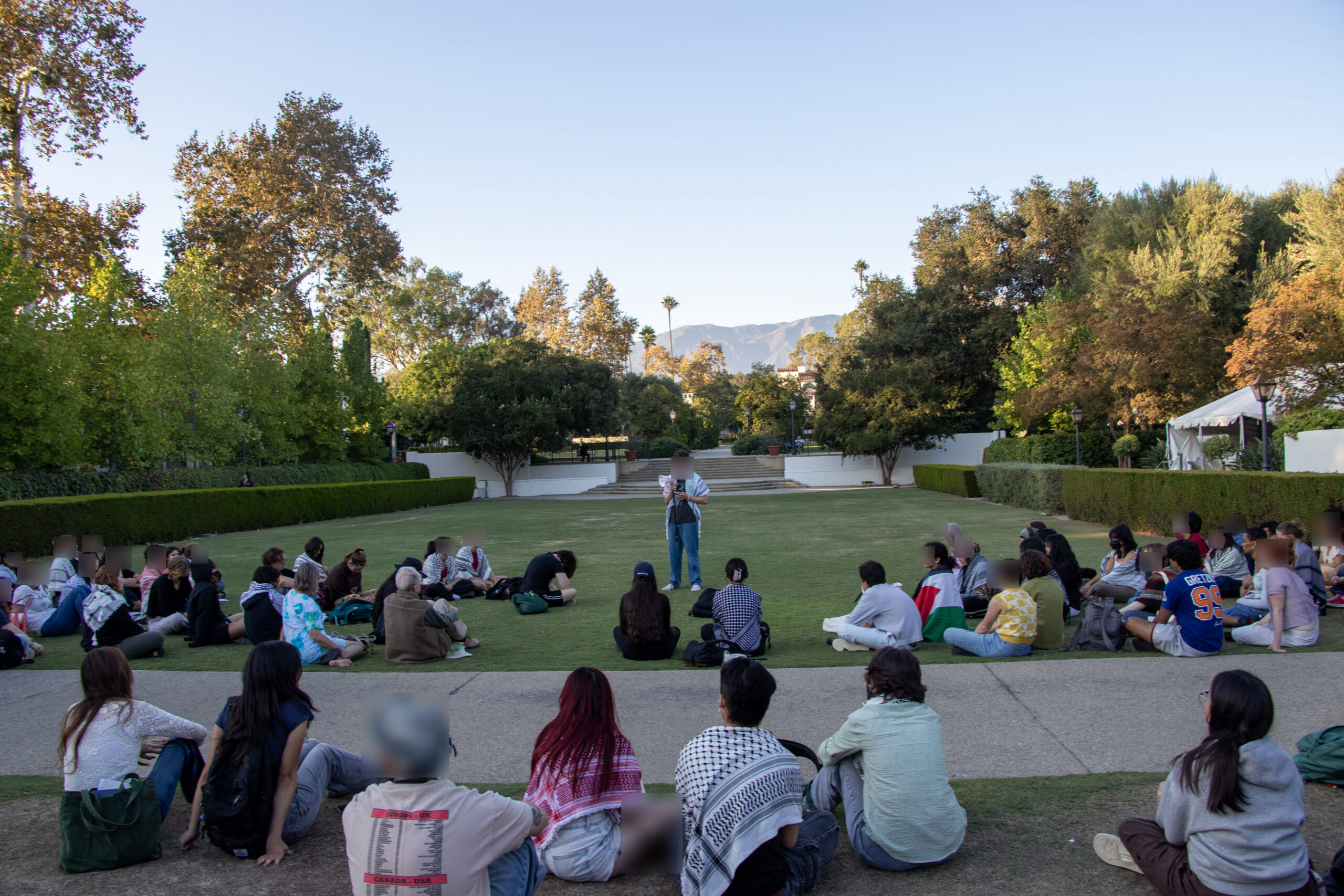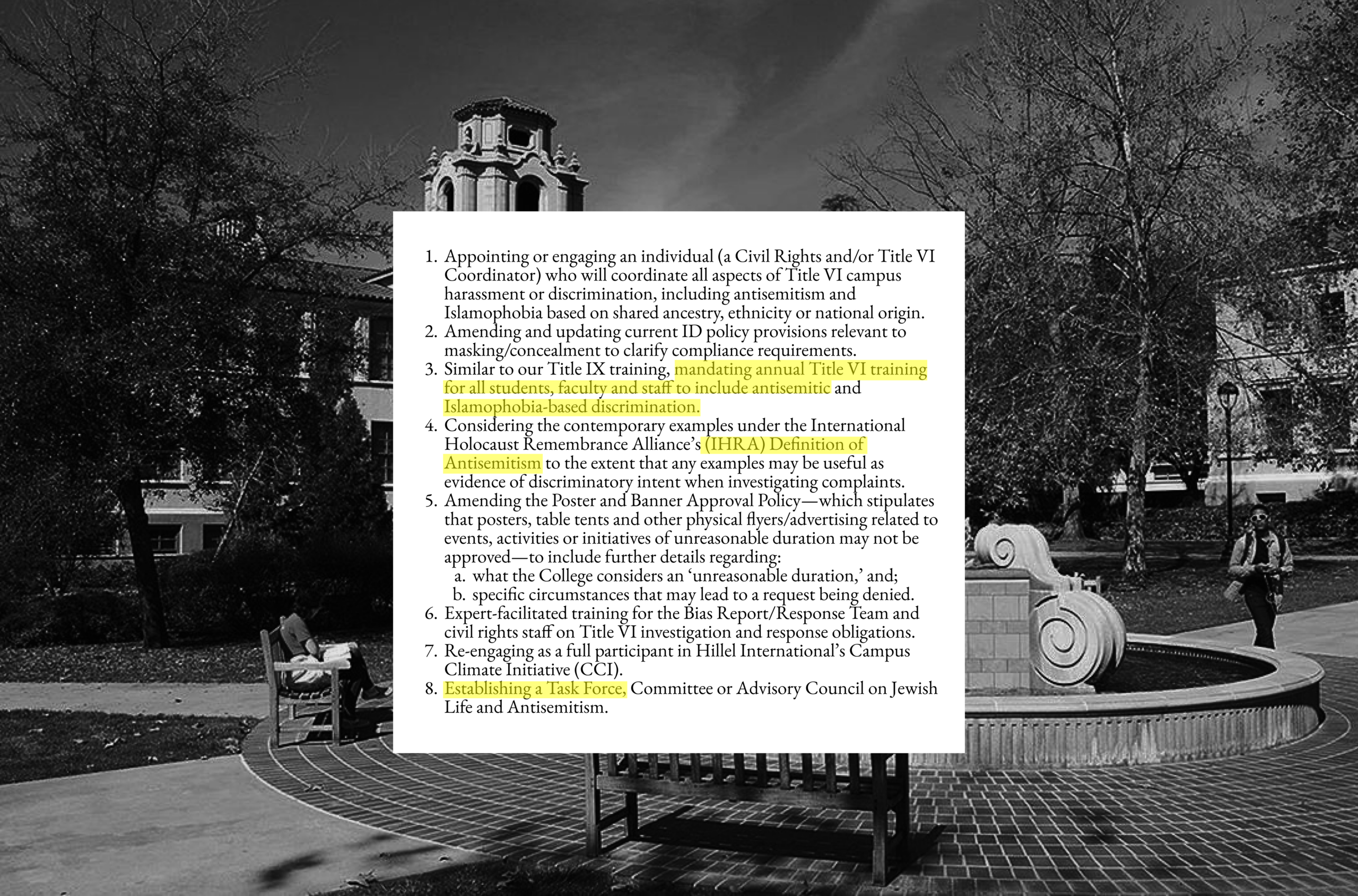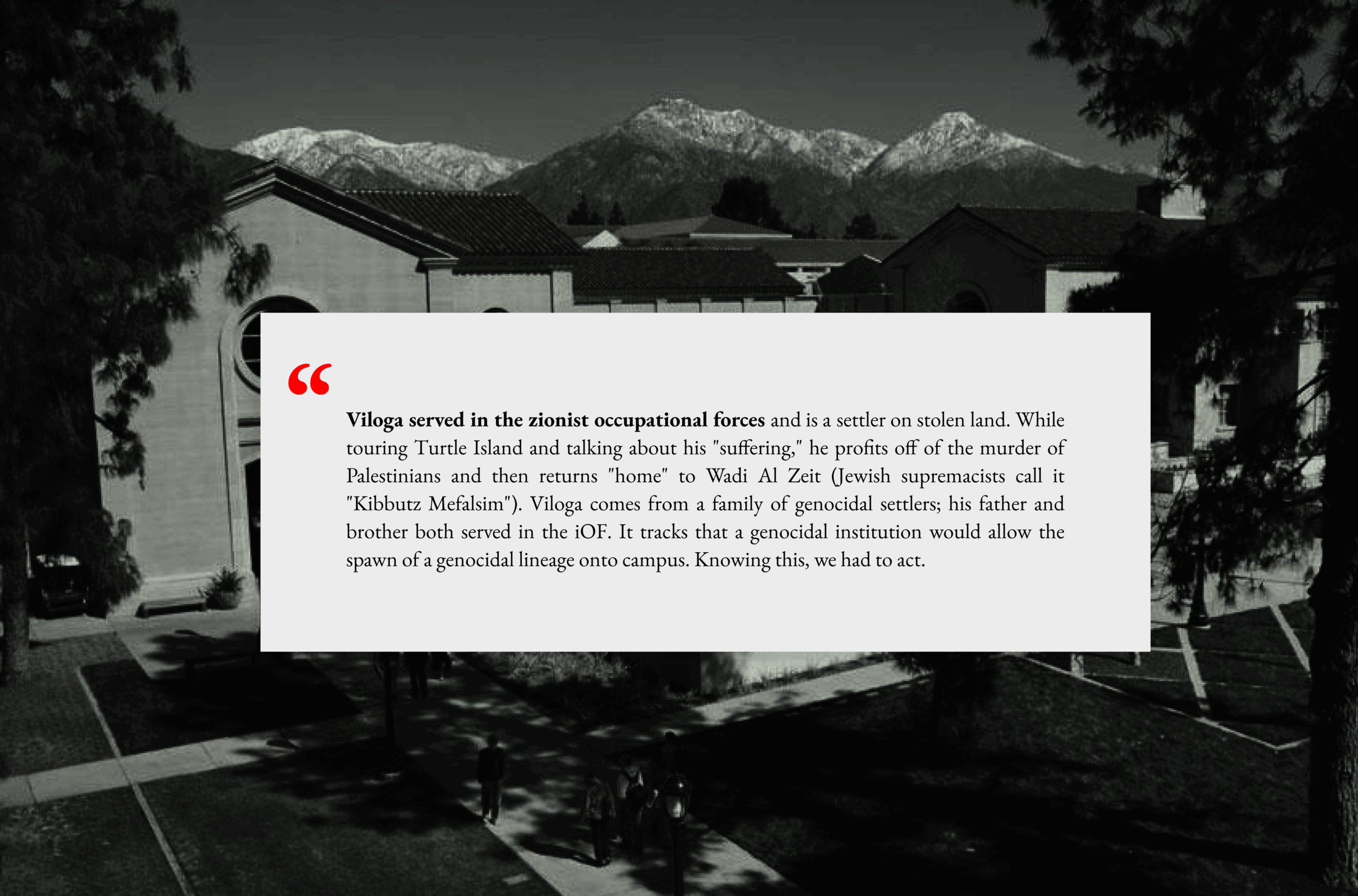
October 28, 2025
“How do we grieve when there can be no grave? Because there are no remains to bury.” – A Scripps faculty member questioned.

On Oct. 7 , over 200 students and faculty members gathered at the Scripps Bowling Green Lawn for a vigil entitled “In Remembrance of the Martyrs of Palestine.” The Claremont Muslim Student Association (MSA) organized the vigil which included speeches, poetry readings, and collective silence to remember the lives of those martyred in the genocide and to reaffirm solidarity with Palestinians resisting occupation and erasure.
The vigil commemorated the two year anniversary of the Zionist entity’s escalated genocide in Gaza, the West Bank, Lebanon, and other countries targeted in the SWANA region. Recently the Zionist entity has killed 100 Palestinians and injured 230 more, breaking the ceasefire agreed to on Oct. 10. Since the ceasefire agreement came into effect, the Zionist entity has already violated the agreement at least 80 times, launching at least 20 airstrikes on Southern Gaza.
MSA opened the evening with a somber, empowering address of the “devastation of Gaza,” and reaffirmed global solidarity for Palestine.
A speaker from MSA noted that notwithstanding the Zionist entity’s attempt to completely erase Palestinian lives, the resilience of people in Gaza still stands strong. In face of violence and tyranny, the Palestinians still stand “steadfast on the truth,” remembering the war and killing that the occupation inflicts.
“Where are the millions? Where is the movement of governments, the echelons of power? The intellectual institutions allegedly committed to defending victims of oppression worldwide only to freeze when called on by the people of Gaza. Where is the outrage of the rulers of our country? Where is the outrage of our countrymen against its rulers For their lack of heart? We have become numb to the crushed skulls, dismembered limbs, and toddlers burnt alive in their sleep. Do not forget Gaza, even for just a second, never legitimize Zionism. We remain steadfast on the truth,” the speaker from MSA said in their speech.
The speaker continued by emphasizing how solidarity with Palestine inspired surges of global resistance against the Zionist entity leading to more international solidarity. In September, the Global Sumud Flotilla with nearly 500 civilians from 47 countries launched 42 boats carrying humanitarian aid to Gaza.
After the MSA student finished their speech faculty speakers addressed the participants, reminding them of the difficulty of mourning the unfathomably cruel intensified genocide that has killed thousands of people.
“How do we grieve hundreds of thousands of people? How do we grieve deaths caused by some such unfathomable cruelty? How do we grieve mass graves? How do we grieve when there can be no grave? Because there are no remains to bury. How do we grieve when the dead cannot be fully counted and named? And how do we do so without allowing those being worn to become statistics?” a faculty member said in their speech.
The speaker provided accounts of Palestinian families killed in airstrikes — parents sifting through rubble, children identifying the charred remains of their loved ones. They ended their speech by reminding the audience the act of remembering is self defiance.
“The endgame of genocide is total erasure — of both people and their existence in history. We document, we narrate, we remember as it happens,” they concluded.
Then another faculty member recited poems written by Palestinian poet Fady Joudah. The speeches and poem-reciting received applause and great support from participants.
Muslim and Jewish students from across the consortium led a series of prayers and speeches. Their prayers called on divine mercy, justice for those suffering in Gaza, and for accountability for.
“Oh Allah, the forgiver of all, forgive our shortcomings and grant us the ability to support the Palestinian cause. In whichever way we can. Forgive us for our hypocrisy and our cowardice. Forgive us for our lack of action,” the student speaker said. “Forgive us for our privilege. Forgive us for our shortcomings and grant us the strength and the resilience. Grant the Palestinian people a victorious future and damn their transgressor forever. Destroy the Zionist entity with all of your might and grant, sanctity the indigenous people who are living there. Remove the settlers and replace them with the faithful,” the speaker said.
Members of Nishmat, an anti-Zionist Jewish student group at The Claremont Colleges, then recited mourner’s Kaddish, an ancient Jewish prayer for the dead written in Aaramic. “It’s a prayer that comforts the bereaved,” one of the student speakers said, “and though it never mentions death, it reminds us that remembering is a form of political labor.”
The vigil ended with the speakers from Nishmat reading from the poem 0f Palestinian-American poet Hala Alyan. “May our memories outlast the slaughter. May they transform us. May our memories become movement,” the poem stated.
All participants in the vigil delivered a clear message: resistance against zionist occupation transcends attempts to divide and pit the oppressed against each other.
After the vigil the organizers urged attendees to go to the People’s Fund market, hosted at the Motley Coffeehouse, where vendors were selling items to raise money in support of people in Sudan, Gaza, and Eastern Congo.


Commentary

Palestine

Palestine

Undercurrents reports on labor, Palestine liberation, prison abolition and other community organizing at and around the Claremont Colleges.

Issue 1 / Spring 2023
Setting the Standard
How Pomona workers won a historic $25 minimum wage; a new union in Claremont; Tony Hoang on organizing
Read issue 1